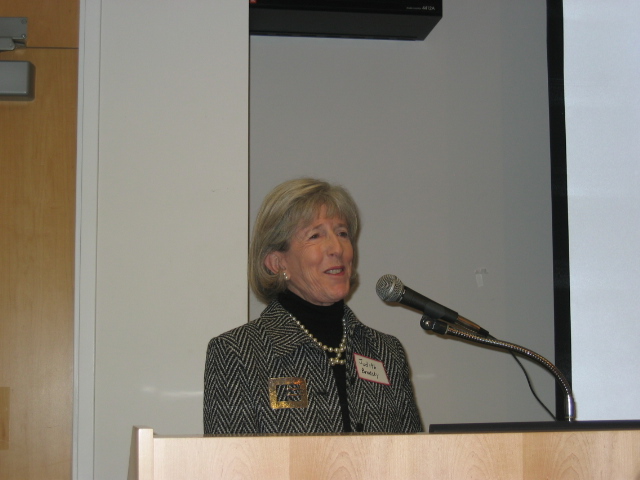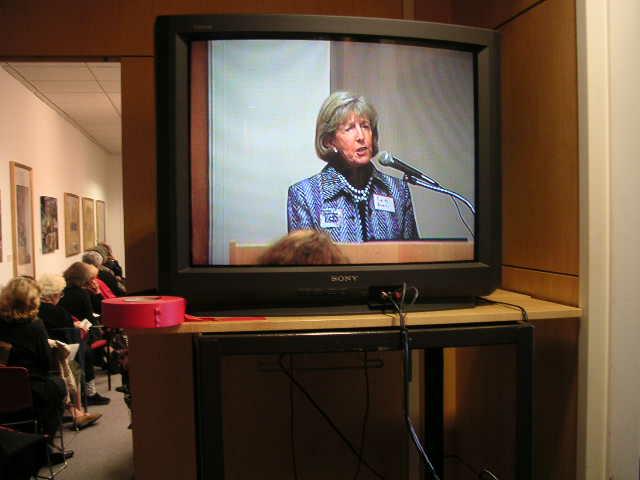Ninth Annual New Jersey Book Arts Symposium
Styles of Collecting, Styles of the Book
Morning Panel: Judith K. Brodsky
Judith K. Brodsky (Founding Director of the Rutgers Center for Innovative Print and Paper), provided a response to the papers, affirming the value of each presentational perspective and their collective contribution to the artists' book movement. Ms Brodsky's recent engagement with an installation of altered photographs and texts about her family--all of the families she has ever been in--and her separation from the administrative duties that she discharged so effectively and for so long at the RCIPP, seemed to orient her response. She noted that the previous day she been part of a group convened to discuss the history of the women's art movement, and that President Bush's signing into law a bill to ban partial term abortions had triggered a probing and somewhat anxious discussion about women's rights. She reflected upon last year's Symposium, when June Wayne had remarked how difficult it is to be an artist in a time of war, and cut back to the present by asserting that art in itself matters: "the hope of the world is, we can continue to make art and collect art and show art and talk about art." Ms Brodsky fleetingly discussed her own installation of large altered photographs and texts ("Memoir of an Assimilated Family,") as a form of book, and speculated about the effect of text and image on the scale of an installation, "where the book [leaves] the intimate situation" of a reader holding an object in his or her hand. The notion of installation as book had been introduced in Marshall Weber's presentation, as well as in the accompanying exhibition, in the work of Karen Guancione. Ms Brodsky also commented movingly upon the significance of libraries to the current art world and to evolving concepts of art. She observed that the New Jersey Book Arts Symposium "is an example of the tremendous role that libraries and librarians are playing right now ... opening up the art world to new ideas, and becoming a source of ideas that are having an impact on the rest of the art world," and singled out Michael Joseph, NJBAS founder, for particular attention. Most importantly, perhaps, Ms Brodsky also suggested that "artists' books are the quintessential medium for the post modern world," because they allow the "entrance of the personal," "allow for interdisciplinarity (including video and film)," "provide artists a medium to relate messages to the greater world" (not merely the art world), and use creativity "to explore areas that are closed off to other art forms." Artists books "provide inspiration just just for artists, but all people who come to these books." (For notes about "Memoir" see "A Family Memoir for Friends and Strangers: Judith Brodsky" [Wayback Machine] by Princeton Info, and the Discover Jersey Arts page [Wayback Machine].) Ms Brodsky apologized for having missed Constance Woo's presentation (although her valorization of art in itself indirectly addressed Dr. Woo's privileging of concept), but said she had heard enough to keep her going until next year's Symposium (NJBAS10!).

